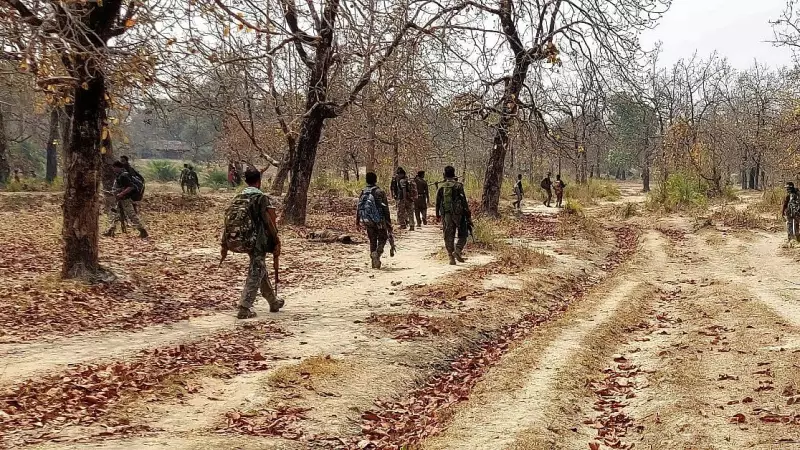
Security Forces Gain Strategic Foothold in Maoist Territory
In a significant move to counter Maoist influence, security forces have established a new camp in the challenging terrain of Karregutta Hills in Chhattisgarh. The strategic positioning of this facility marks a crucial step in the ongoing efforts to secure the region and provide essential services to local communities.
New Camp Established Near Tadpala Village
On November 4, security personnel set up the 'Surakhsa Evam Jan Suvidha Camp' near Tadpala village, which falls under the jurisdiction of Usoor police station in Bijapur district. This development was officially confirmed on Sunday, November 23, 2025, highlighting the continued commitment to stabilizing the area.
The camp's location was carefully selected to address both security concerns and public welfare needs. Situated in an area known for Maoist activity, the facility serves dual purposes: maintaining security presence while simultaneously providing access to government services for villagers who previously had limited interaction with state authorities.
Strengthening Government Presence in Challenging Terrain
The establishment of this camp represents more than just a military outpost. It functions as a comprehensive security and public facility center, offering local residents much-needed amenities while ensuring their protection from extremist elements. This approach aligns with the government's broader strategy of combining security operations with development initiatives.
Bijapur district has long been identified as a sensitive region where Maoist groups have maintained hideouts and operational bases. The difficult terrain of Karregutta Hills has historically provided natural cover for insurgent activities, making the new camp's establishment particularly significant for counter-insurgency operations.
Security experts note that such camps serve multiple strategic purposes:
- Extending the security forces' operational reach
- Building trust with local communities through service provision
- Creating a permanent government presence in remote areas
- Disrupting Maoist supply lines and communication networks
Long-term Implications for Regional Security
The timing of this deployment during early November indicates careful planning to maximize operational effectiveness before potential seasonal challenges. The camp's establishment near Tadpala village specifically targets an area where Maoist influence has been particularly strong, signaling the government's determination to reclaim control over these territories.
Local residents have expressed cautious optimism about the development, hoping that the increased security presence will lead to improved safety and better access to government services. The 'Surakhsa Evam Jan Suvidha Camp' model has proven effective in other parts of the region, combining security operations with civic action programs to win local support.
This strategic move comes as part of a broader pattern of security force deployments in Chhattisgarh's conflict-affected regions. The continued focus on establishing permanent camps in difficult terrain demonstrates the security establishment's long-term commitment to addressing the Maoist challenge through sustained presence and community engagement.




